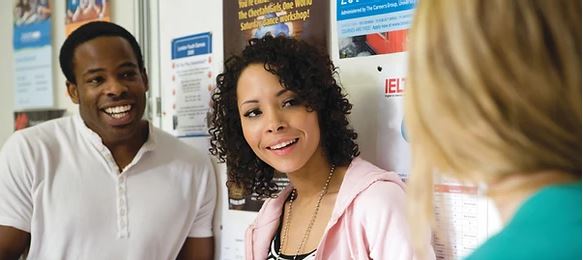Do as much listening in English as you can
This is the third blog post in a four-part series dedicated to helping you improve your IELTS speaking skills at home without the help of a teacher. In this post, we’ll be focusing on how you can maximize your listening opportunities to help you develop your spoken English.
It’s quite simple really. The more you listen and ‘notice’ language that is of interest to you, the more you will learn and this will, in turn, help you to improve your speaking skills. You can maximize your opportunities to listen to English in one of the following ways:
Ask questions!
Whenever you are having a conversation in English – whether this is with somebody whose main language is English or not – ask as many questions as is reasonable. The more questions you ask, the more you are required to listen and understand and then respond. Be careful not to overdo it though; nobody likes to be on the receiving end of an interrogation!
If you know you’ll be having a conversation in English later on this week, why not jot a few questions down that you can ask this person? Forming questions in English can be tricky so a bit of preparation beforehand can only help.

Join a conversation club
If you’re more focused on improving your general English at the moment and prefer face to face contact with people, why not try a local conversation group. It’s a great way of making new friends in your area too. Language Exchange Meet ups (https://www.meetup.com/topics/english-language/) - The Meet Up website has exploded in popularity over recent years and is a great way to join local clubs. A simple search on ‘Language Exchange’ or ‘English language’ brings up 100s of English language conversation groups in major cities all over the world.

Watch films or television in English
With the advent of Netflix, YouTube and catch up television online such as BBC and Channel 4 in the UK, there are plenty of opportunities to be entertained in English. The great thing is, all these online streaming services also provide a transcript or subtitles facility where you can watch and read along at the same time.
My advice would be to pick a programme or film you are really interested in and watch it once or twice with the subtitles on. Then turn the subtitles off and see how much you understand. You might have to watch it a few times without the subtitles, but the more you do this, the more you should understand.

Listen to phone-in discussions on English radio
The majority of radio stations in any part of the world will broadcast a radio phone in at least a few times a week. These popular radio shows provide an opportunity to call in and air your views on the topic that is being discussed.
Why not make listening to these types of shows part of your weekly routine? Put the radio (or internet) on, listen to the current debate and actually respond, out loud, to what is being said. Imagine you are part of the discussion. What would you say in English in response to it? You might feel a bit silly talking to the radio at first, but it’s a great way of (almost) taking part in a discussion in English which is ideal training for Part 3 of the IELTS Speaking test.
Try the following shows to begin with – Jeremy Vine’s lunchtime show on BBC Radio 2, The Your Call 9am-10am phone-in on BBC Radio 5 Live or any show on Talk Radio.
Sing along to English songs
Learn the words to your favourite songs in English and belt them out when you’re in the shower or driving to work. It doesn’t matter how awful your singing voice is – hopefully your family, flatmates or neighbours won’t object, and it could really help to boost your fluency.
This is by no means an exhaustive list of listening opportunities, but I hope it gives you some useful tips. Perhaps you could use the comments field below to share your top tips on what you listen to in English regularly. I’d love to hear from you!

Laura Plotnek Jones is an experienced English language teacher, specialising in IELTS. She runs Home English – a private language school in Birmingham, The UK – where she helps to prepare 100s of students for the IELTS exam every year. As part of her work, she produces her own teaching materials to address her students’ areas of difficulty, particularly in writing. Laura holds the Diploma in English Language Teaching for Adults (DELTA) and is the National Coordinator for NATECLA (the National Association of Teaching English and Community Languages to Adults).
If you have any comments on or questions about this blog post, she’d love to hear from you!





